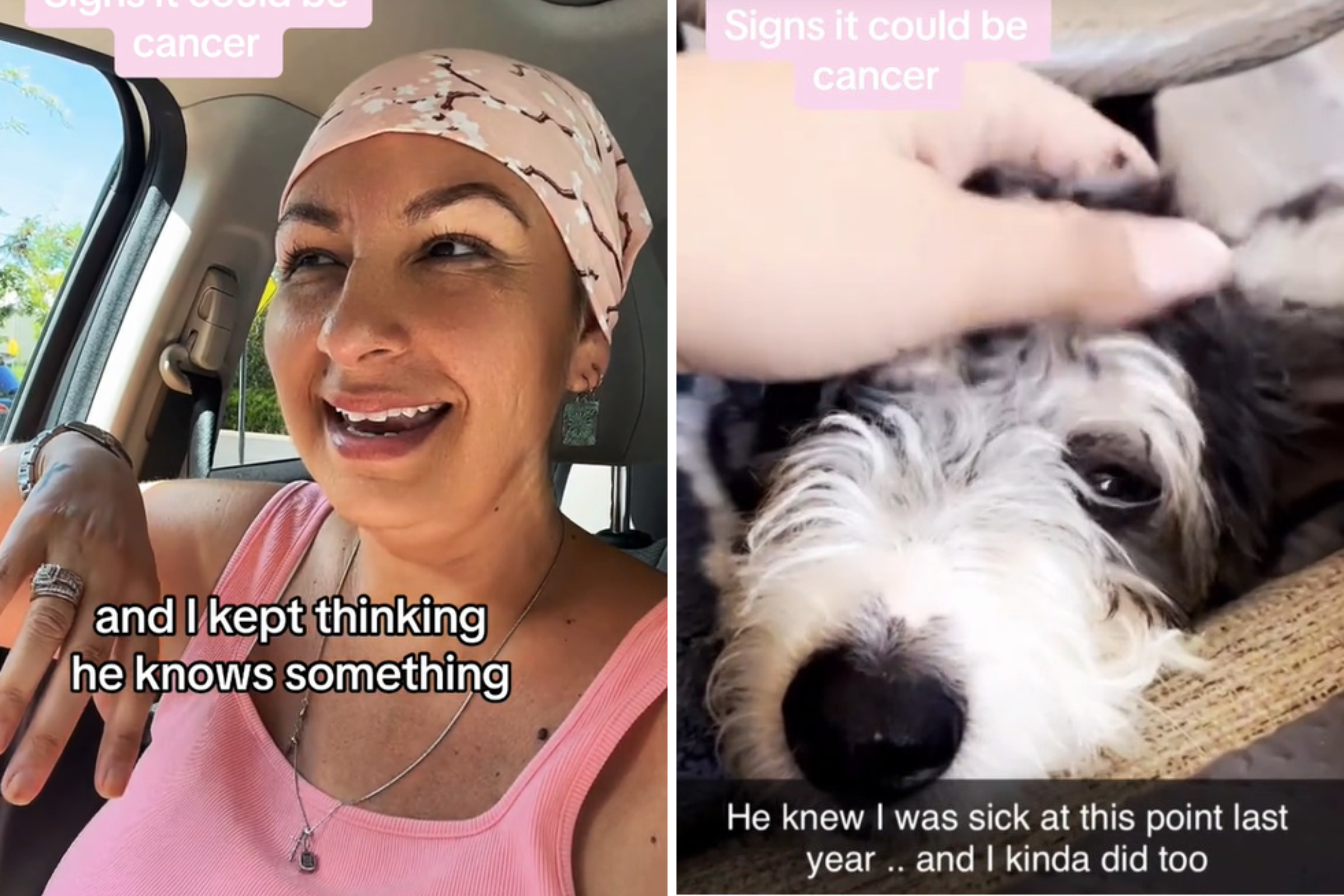Dogs are known for their loyalty and companionship, but some owners believe their pets may possess an even greater gift—the ability to detect cancer.
Cecy Gallegos, who lives in California, told Newsweek her Chihuahua-Maltese mix, Buddy, sensed her breast cancer long before she received a formal diagnosis. In November 2022, she was diagnosed with lobular carcinoma, the second most common form of breast cancer, but she says Buddy’s behavior had already alerted her that something was wrong.
Getting a diagnosis wasn’t easy for Gallegos, who is now 48. After noticing physical changes in her breast, she requested a mammogram earlier that year, in April. The results showed dense tissue, and she was advised to return a year later. Despite the medical advice, Gallegos trusted her instincts—particularly because of Buddy’s unusual behavior.
“He seemed unusually sad and would rest his head on my lap,” Gallegos said, adding that he was known to sniff her breast too. “It was as if he sensed my illness before I fully understood it myself.”
Trusting Dog’s Intuition Led to Diagnosis
Buddy’s behavior was a persistent signal. Gallegos took to TikTok (@glitterandpolish) to share her story, posting a video in which she reflected on Buddy’s actions. The clip shows Buddy with a sad expression, and Gallegos wrote in the text overlay, “He knew I was sick at this point, and I kinda did too.”
She encouraged other pet owners to pay attention to similar signs of clinginess or sadness in their pets, believing that animals may detect illness in ways humans cannot.
Determined not to wait a full year, Gallegos underwent two additional mammograms in July and October. These tests revealed abnormalities that led to a biopsy and, ultimately, her cancer diagnosis in November. “The changes extended into my breast tissue, and the biopsy confirmed it was cancer,” she said.
Each year, about 30 percent of all newly diagnosed cancers in women are breast cancer, according to BreastCancer.org, which underscores the importance of early detection. Gallegos urges others to trust their instincts when it comes to their health and not to take “no” for an answer.
“Pets can sense these things,” she said during the clip, which has over 62,000 views.
Gallegos’ story is supported not only by scientific studies and a veterinarian who spoke to Newsweek but also by TikTok users who shared similar experiences in the comments.
One woman wrote: “My dog laid on my knee all the time. It was being eaten up by cancer.”
Another wrote: “I’m a cancer survivor, and my dog did the same—he would even cry. Yes, our pets do know.”
TikTok/@glitterandpolish
Dogs Sensing Cancer Backed by Science
Veterinary surgeon Nick Horniman told Newsweek that dogs have an extraordinary sense of smell and can detect volatile organic compounds (VOCs) produced by cancer cells.
“New research suggests that dogs can smell these VOCs, which are emitted by cancer cells, giving them the ability to detect certain human diseases, including cancer,” Horniman said.
In a 2021 study conducted in Japan, researchers trained a Labrador retriever to recognize VOCs linked to breast cancer by sniffing urine samples. The dog successfully identified all 40 breast cancer patients with 100 percent accuracy in a double-blind test, suggesting that dogs could help in new screening methods.
“While these results are promising, these studies are still developing, meaning it will be a long time before we see dogs roaming hospitals sniffing out diseases,” Horniman said.
Buddy Stays by Her Side Through Treatment

Cecy Gallegos
Gallegos’ story is a powerful reminder of how animals might play a role in detecting illness. After her diagnosis, she underwent surgery in January 2023, and doctors found that cancer had spread to two of her lymph nodes. She completed 11 rounds of chemotherapy by March and is now in remission.
“I’m doing well, thanks to my strong faith in God and his grace,” Gallegos said. However, she is still being closely monitored. A PET scan in May showed concerning areas in her throat and neck, and a follow-up scan confirmed similar findings.
“I’m a bit anxious, but I try to stay positive. Once you’re diagnosed, your new normal becomes a cycle of healing, testing and waiting,” she said.
Throughout her cancer experience, Buddy has remained by her side. “My motto is, ‘This is the path I have to live out,’ so I might as well do it positively, as negativity only makes it harder,” she said.
Buddy, she added, continues to be her constant companion.
Is there a health problem that’s worrying you? Let us know via health@newsweek.com. We can ask experts for advice, and your story could be featured in Newsweek.
